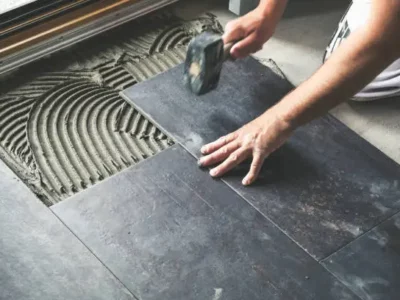Purchasing your dream house is a milestone that many aspire to achieve. It’s not just about buying a property – it’s about investing in your future and creating a sanctuary where you can truly call home. However, the financial aspect of this endeavor can be daunting. From saving for a down payment to securing a mortgage and managing ongoing expenses, financing the purchase of your dream house requires careful planning and consideration.

Mortgage Options and Pre-Approval
Navigating the world of mortgages can be overwhelming. The mortgage options available may include fixed-rate, adjustable-rate mortgages, government-backed loans such as FHA or VA loans, and jumbo loans for high-value properties. When you begin to research reputable mortgage lenders online, keep in mind that each of these options comes with its own set of terms, interest rates, and eligibility criteria. It’s essential to carefully evaluate your financial situation, future plans, and risk tolerance when choosing the right mortgage for your dream house.
Fixed-rate mortgages offer stability with consistent monthly payments, making it easier to budget for the long term. In contrast, adjustable-rate mortgages (ARMs) may start with lower interest rates but come with the potential for rate fluctuations, which can impact your monthly payments.
Saving for the Down Payment
The first step towards financing your dream house is building a solid savings foundation. This means saving for a substantial down payment, typically around 20% of the home’s purchase price. Some strategies to accelerate your savings include budgeting, cutting unnecessary expenses, and exploring alternative income streams. A larger down payment not only reduces your mortgage costs but also demonstrates financial responsibility to lenders.
Improving Your Credit Score
Your credit score plays a pivotal role in securing favorable mortgage terms. Lenders use your credit score to assess your creditworthiness and determine the interest rate they offer you. A higher credit score generally results in lower interest rates, potentially saving you a significant amount of money over the life of your mortgage. To improve your credit score, start by reviewing your credit report for errors and addressing any discrepancies.
Additionally, focus on paying down existing debts, making payments on time, and avoiding taking on new debt in the months leading up to your mortgage application. Patience and diligence are key in this process, as it may take some time to see improvements in your credit score. By actively managing your credit, you can position yourself for a more favorable mortgage offer.
Budgeting for Homeownership
Once you’ve secured your dream house, the financial responsibility doesn’t end. Homeownership comes with ongoing expenses like property taxes, insurance, maintenance, and utilities. Budgeting is crucial to ensure that you can comfortably cover these costs while also setting aside funds for unexpected repairs and future upgrades. Creating a detailed budget that accounts for all your housing-related expenses is essential.
Consider setting up separate savings accounts for property taxes and maintenance to avoid financial surprises when these bills come due. It’s also wise to explore cost-cutting measures, such as energy-efficient upgrades, to reduce utility expenses over time. Remember that responsible budgeting not only ensures your current financial stability but also preserves the value of your investment in your dream house for years to come.
Exploring Government Assistance Programs
For those entering the housing market for the first time, there are government assistance programs tailored to make homeownership more accessible. These programs often offer lower down payment requirements, reduced interest rates, and even grants or tax incentives. One of the most well-known programs is the Federal Housing Administration (FHA) loan, which allows borrowers with lower credit scores and smaller down payments to qualify for a mortgage.
Another option is the U.S. Department of Veterans Affairs (VA) loan, exclusively available to eligible veterans and active-duty service members, offering favorable terms such as zero down payment requirements. Additionally, some state and local governments offer their own first-time homebuyer programs, each with unique benefits and eligibility criteria.
Factor in Closing Costs and Home Inspections
When calculating the budget for your dream house, it’s crucial to consider the often-overlooked expenses associated with the home-buying process. Closing costs, which include fees for appraisals, title searches, and legal services, can add a substantial amount to your overall expenditure. Moreover, investing in a thorough home inspection before finalizing the purchase can save you from unexpected repairs down the line.

Securing the financing for your dream house requires a multifaceted approach that encompasses savings, credit management, mortgage selection, and budgeting for various expenses. It’s a significant financial commitment, but with determination and a well-considered plan, it can be well within your reach. Whether you’re a first-time homebuyer or a seasoned homeowner, understanding these financial aspects and government assistance programs, assessing additional costs, and leveraging home equity can help you achieve your dream house while ensuring long-term financial stability.




















